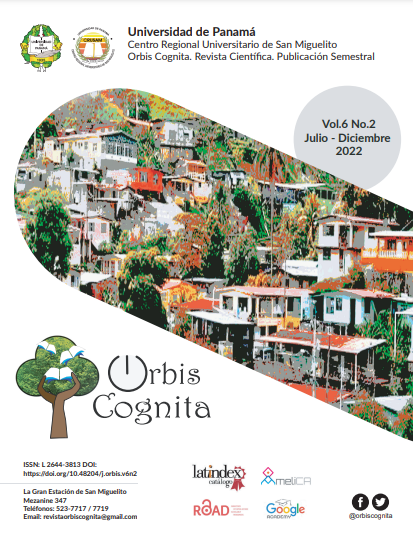References
Brown, D., Jennings, G., y Molle, A. (2010). Exploring relationships between Asian martial arts and religion. Stadion (Cologne, Germany), 35, 47-66. https://www.researchgate.net/publication/267924813_Belief_in_the_martial_arts_Exploring_relationships_between_Asian_martial_arts_and_religion
Bullard, S. (2019). How to Help Kids Develop Social Skills with Karate. https://canadasbestkarate.ca/how-to-help-kids-develop-social-skills-with-karate/#:~:text=Karate%20classes%20teach%20kids%20the,effectively%20with%20peers%20and%20instructors.
Collantes, R., Ortega, P., y González, M. (2021). TICs utilizados por instructores de artes marciales durante cuarentena por COVID-19 en Panamá. Revista Científica De Sistemas E Informática, 1(2), 4-14. http://dx.doi.org/10.51252/rcsi.v1i2.160
Funakoshi, G. (1973). Karate-Do Kyohan: The Master Text. First Edition, Traducido por T. Ohshima. Kodansha International, Ltd., 256 p.
Jakhel, R. (2019). Karate's ambiguity: Traditional martial art or modern combat sport. Revista de Artes Marciales Asiáticas, 14(2s), 68-70. http://dx.doi.org/10.18002/rama.v14i2s.6000
Japan Karate Association – División Técnica. (2005). Technical Manual for the Instructor. Traducido por O. Aoki y J. Sabah. Impreso en Japón. https://www.jka.or.jp/wp/wp-content/uploads/2017/04/MANUAL-TECNICO-DE-INSTRUCTOR.pdf
Katanamart. (2017). Diferencias entre el Karate deportivo y el Karate tradicional. https://www.katanamart.eu/blog/10_diferencias-entre-el-karate-deportivo-y-el-karate-tradicional.html#:~:text=El%20K%C3%A1rate%20deportivo%20prioriza%20la,en%20pesos%20de%20los%20rivales.
Kusnierz, C., Cynarski, W., y Gorner, K. (2017). Social reception and understanding of combat sports and martial arts by both school students and adults. IDO MOVEMENT FOR CULTURE. Journal of Martial Arts Anthropology, 17(1), 30-37. http://dx.doi.org/10.14589/ido.17.1.5
Lantz, J. (2002). Family Development and the Martial Arts: A Phenomenological Study. Contemporary Family Therapy 24, 565–580. https://doi.org/10.1023/A:1021221112826
Martinkova, I., Parry, J., y Vagner, M. (2019). The Contribution of Martial Arts to Moral Development. IDO MOVEMENT FOR CULTURE. Journal of Martial Arts Anthropoloby, 19(1), 1-8. http://dx.doi.org/10.14589/ido.19.1.1
Ogarrio, C. (2020). Karate Do formativo. Universidad de Sonora, México. http://dx.doi.org/10.47807/UNISON.12
Peñaranda, E. (2013). Karate infantil: vehículo de integración social. [Tesina, Federación de Karate de la Comunidad Valenciana, España]. https://www.fkaratecv.es/wp-content/uploads/PE%C3%91ARANDA_HERNANDEZ_ENRIQUE_TESINA_5%C2%BADAN.pdf
Prosoli, R., Lochbaum, M., y Baric, R. (2021). Parents at the sport competition: How they react, feel and cope with the event. Pedagogy of Physical Culture and Sports, 25(2), 114-124. https://doi.org/10.15561/26649837.2021.0206
Rubio, S. (2019). Los valores de las artes marciales en la actualidad. http://dobokdiario.medios.com.ar/contenido/327/los-valores-de-las-artes-marciales-en-la-actualidad
Secretaría Distrital de Integración Social (Bogotá-Colombia). (2019). En el CDC La Victoria una familia completa practica Karate. https://www.integracionsocial.gov.co/index.php/noticias/170-territorio/4752-en-el-cdc-la-victoria-una-familia-completa-practica-karate

